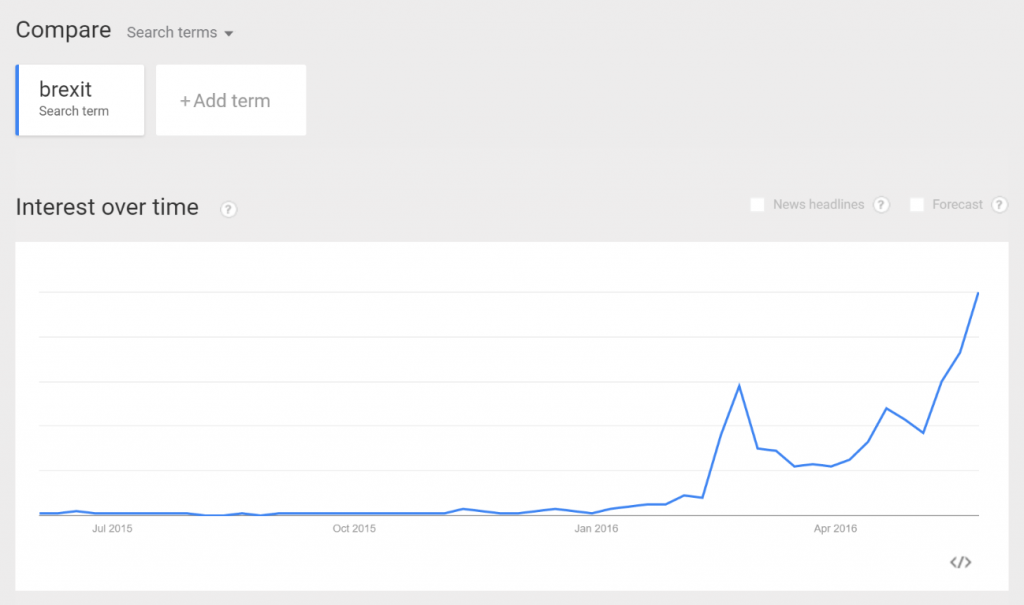Unless you’re from another planet, you’ve probably come across the term Brexit. It’s a combination of “Britain” and “exit,” as in Britain exits the European Union (EU.) Britain is one of 28 members of the EU (list here), not all of which use the Euro currency; that list (here) only includes 19 of the countries.
On June 23, the British will go to the polls to determine whether the country will stay in the EU, membership in which entails complying with the EU’s standards and rules. Most of what I’ve seen about the possible outcome has to do with drawbacks of such a move; for example, “London’s position as a (European hub) for decision makers from non-EU companies has been eroded since the creation of the euro and will deteriorate further if the UK votes to leave the bloc…” According to the Financial Times’ website, a May 16 poll (track the poll here) shows 47% in favor of staying; 40% in favor of leaving.
In the graphic below, you can track the frequency of searches on “Brexit,” and you can see it live, here.

